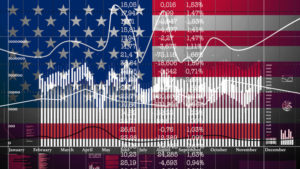
By rzoze19 @ Shutterstock.com
With profits racing ahead of economic growth in America, Mike Bird of The Wall Street Journal suggests replicating recent American stock market success will be difficult. He writes:
The S&P 500 is back at a new record high, while stocks in most of the rest of the world are yet to return to 2018’s peaks. But the rampant outperformance of U.S. equities can’t last forever.
Low interest rates and eye-watering valuations have been credited with driving the U.S. bull market, but financial conditions haven’t been so different elsewhere. The big reason why U.S. stocks have beaten those in almost every other country during the past decade—and why the trend has limits—is more basic: profits.
Since the beginning of 2008, earnings per share for U.S. equities have risen by 80%, according to FactSet data. Over the same period, Japanese earnings have risen by half as much in dollar terms, emerging-market earnings are flat and European companies are yet to see profits recover to their level before the financial crisis.
The postcrash economic expansions in Europe and Japan have been weak relative to the U.S. recovery, which has been helped by the global success of Silicon Valley. China’s slowdown has pinched emerging markets.
This divergence could continue, but other parts of the picture look harder to replicate. Above all, U.S. corporate profits have surged relative to the size of the economy. For the second half of the 20th century, corporate profits after tax typically ran to around 6% of output, and almost never rose above 8%. Now, the figure runs to 10%, helped by last year’s tax cuts. It would have to rise to unprecedented levels, double its precrisis average, to repeat the trend of the past decade.
Read more here.
